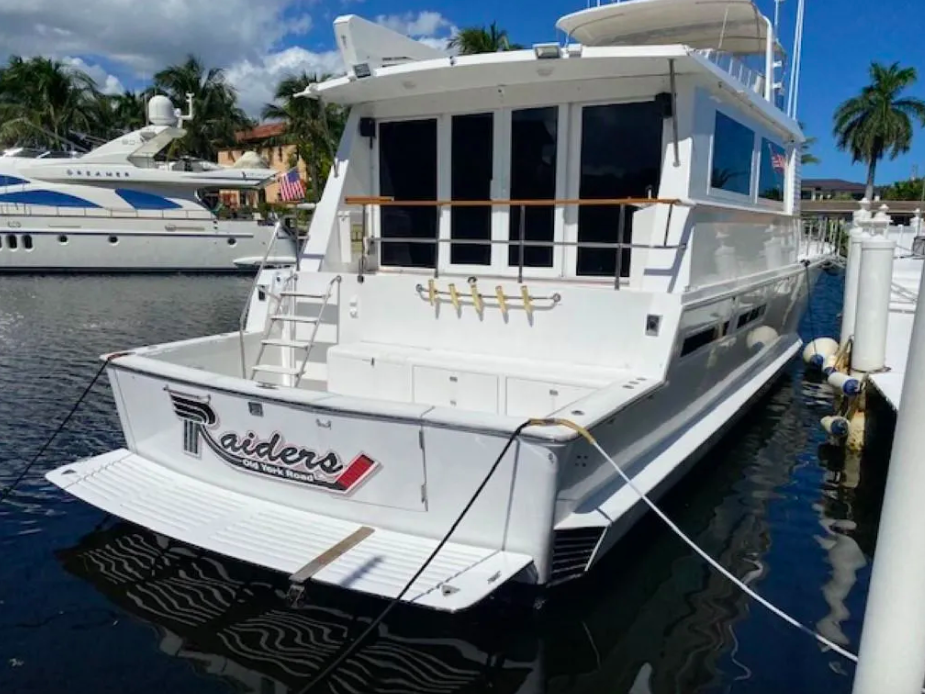Out of date fire extinguishers at centre of boating legal battle

A legal appeal in the USA, which centres around whether fire extinguishers not being re-certified should invalidate an insurance claim for a grounding, is pending adjudication before the US Supreme Court.
In 2019, a yacht owned by Raiders Realty, based in Pennsylvania USA, ran aground and acquired at least $300,000 in damages. The yacht was insured by Great Lakes Insurance (GLI).
But after Raiders submitted a claim under its policy, GLI left it high and dry, says Policy Holder Pulse. The insurer’s reason for denying coverage: the yacht’s fire-extinguishing equipment had not been timely re-certified or inspected.
Even though the policy covered “all risks” for physical damage to the vessel and there was no fire, insurance coverage was voided, as per the contract, because the extinguishers weren’t correctly certified.
Now the ‘choice of law’ case boils down – roughly – to whether New York or Pennsylvanian laws should be used to determine whether the claim should be upheld – with the former more likely to support the insurance company, and the latter more likely to support the boat’s owner.
The US Supreme Court has agreed to hear the ‘choice of law’ case. Pennsylvania has a strong public policy that would be blocked by applying New York law, says Sarah Ferguson writing on Jurist. (In US law, public policy means the principle that harm to the public benefit is a grounds for denying the legitimacy of a contract or other transactions, says Cornell Law School.)
Raiders is owned by Pennsylvania businessman Phil Pulley. Pulley told Loose Cannon’s Peter Swanson that the 70-foot motoryacht was underway on the Intracoastal Waterway in Fort Lauderdale when it “hit something” and began taking on water fast. Pulley said he ran Raiders aground. By then the water was up to the engine oil pans. To reiterate, there was no fire.
Swanson says the boat was insured by the German owned Great Lakes Insurance, with a branch in London, and that after investigating the claim it declared the policy “void from its inception for non-compliance with the contract”. Pulley’s premiums were refunded, but he was left to finance repairs for the damage.
Pulley told Loose Cannon that he later learned that a billion dollars in maritime insurance claims had been denied over the past decade in this fashion.
While Pennsylvania’s laws don’t support the notion of effectively denying damage claims because of unrelated contract violations, insurance companies have been getting around pro-policyholder state laws by including a “choice of law” clause in their contracts, says Swanson. In Pulley’s case, the contract specified that the laws of New York would apply in deciding the outcome of claims disputes. New York precludes bad-faith claims against insurers.
Typically, when a contract states ‘choice of law’ and both parties consent, the court upholds this choice. Going against the precedent, however, the US Court of Appeals for the Third Circuit ruled that a choice of law contract “might not be enforceable if its election for New York law were contrary to the ‘strong public policy’ of the displaced state, Pennsylvania,” says Ferguson.
GLI sued first, says Policy Holder Pulse, seeking in federal court a declaratory judgment that Raiders’ alleged failure to re-certify or inspect its fire suppression equipment rendered the policy void from its inception.
Raiders responded with five counterclaims, including three extra-contractual counterclaims arising under Pennsylvania law for breach of fiduciary duty, insurance bad faith, and breach of Pennsylvania’s Unfair Trade Practices and Consumer Protection Law.
“On one hand, we have a boater whose lawyers are arguing that choice-of-law clauses are unreasonable and unjust when applied against a claim. What does an out-of-date fire extinguisher have to do with a bent shaft?,” asks Swanson. “On the other, we have an insurance industry that relies on strict adherence to contract provisions to shape the behaviour of its policyholders and which allows insurers to set rates that are competitive, yet sufficient to cover risk and stay in business.”
Image courtesy of Boats.com where the vessel in question is currently listed for sale.












Thus go the non-unified systems of law, where only those with vast specialist knowledge, of the local differences in law, can hope to make a proper assessment of contract risks.
There again we also have Scottish law so we haven’t yet sorted it out properly.